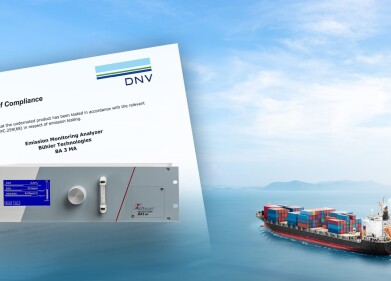Measurement and testing
How is Microscopy Used to Improve Energy Materials
Oct 07 2022
From catalysts in high-performance lithium ion batteries to silicon semiconductors in ultra-efficient solar cells, energy materials have a critical role to play in the clean energy transition. These unique materials have the capacity to store and release chemical energy, which makes them ideal for applications like batteries, fuel cells and solar power storage systems.
“Energy materials are vital to energy conversion and storage devices that make renewable resources viable for electrification technologies,” write the authors in an article published in the Journal of Energy Chemistry.
Accelerating advances in clean energy
Scientists and engineers rely on a myriad of scientific techniques to improve energy materials. Microscopy is one of the most useful and has helped accelerate advances in clean energy innovations and electrification technologies. Below, we take a closer look at how microscopy is being used to analyse energy materials.
In the Journal of Energy Chemistry article cited above, the authors introduce “in situ” transmission electron microscopy (TEM) as a method to improve energy materials. They describe the technique as “a powerful approach to characterise the dynamic evolution of material structure, morphology, and chemistry at the atomic scale in real time and in operando.”
Artificial intelligence and microscopy
Artificial intelligence (AI) powered analytics is also introduced as a way to interpret microscopy data. This includes machine learning tools to analyse the huge amounts of data generated by TEM imaging.
“The deep synergy of in situ TEM and artificial intelligence-enabled analytics offers unprecedented capabilities for real-time investigation of dynamic behaviors for materials used in energy-related technologies,” reads the abstract.
Microscopy has many other applications in the alternative energy sector, with techniques like scanning electron microscopy (SEM) used to develop and manufacture sustainable biofuels.
Analysis at the atomic and molecular level
Cryogenic electron microscopy (cryo-EM) is another advanced technique used to improve energy materials used to manufacture batteries, solar cells and other technologies. In a paper published in the Accounts of Chemical Research, the team explain how cryo-EM unlocks “an atomic and molecular resolution understanding of the key materials and fundamental processes governing the operation and failure of the systems.”
cryo-EM steps up as an alternative to traditional electron-optical techniques like high-resolution (scanning) transmission electron microscopy, which can degrade energy materials and compromise results. The team maintain cryogenic methods offer “thrilling opportunities to address many crucial yet unanswered questions in energy science, which can eventually lead to new scientific discoveries and technological breakthroughs.”
A new era of lithium ion batteries
From studying electrode materials to improving catalyst performance, microscopy is a valuable tool used to develop lithium ion batteries. A huge amount of research goes into developing high-performance lithium ion batteries powerful enough to run electric vehicles, support national energy grids and meet the demands of aerospace and military applications. Find out more about the mechanics of lithium ion batteries, as well as the advanced analytical techniques used to improve performance, cycle life and energy density in ‘Lithium Ion Batteries: Types, Testing & Uses’.
Digital Edition
PIN 26.1 Feb/Mar 2025
March 2025
Analytical Instrumentation - Elemental Analysis for Quality and Process Control at Refineries, for Lubricants and Wear Metals in Engine Oils - Synthetic Lubricants: New Developments - Scaling...
View all digital editions
Events
Apr 14 2025 Moscow, Russia
Apr 15 2025 Moscow, Russia
Apr 22 2025 Hammamet, Tunisia
Apr 22 2025 Kintex, South Korea
Solar & Energy Storage Summit 2025
Apr 23 2025 Denver, CO, USA



















